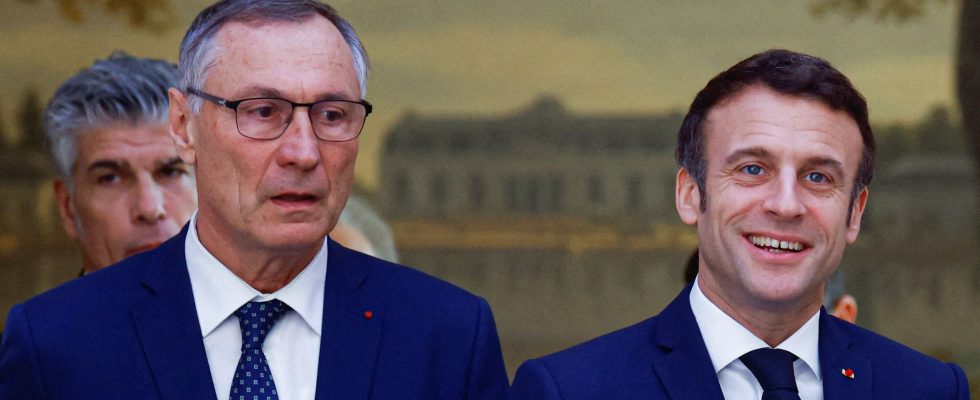In November 2017, in the amphitheater of the Joseph Ki-Zerbo University in Ouagadougou, Emmanuel Macron opened his speech with a quote from the former Burkinabe president Thomas Sankara. And declares: “There is no longer any African policy for France.” Six years later, the Head of State took a new step by appointing Jean-Marie Bockel “personal envoy” of the President of the French Republic to Africa.
And for good reason, the one who was both minister of François Mitterrand and Nicolas Sarkozy, is known for his positions against Françafrique, this system of collusion between France and its former colonies. The former Secretary of State for Cooperation was notably dismissed from his post in 2008 after asking President Sarkozy to sign “the death certificate of Françafrique”.
Reduce the French military presence
Sixteen years later, he is back in business. The man nicknamed the “slayer of Françafrique” is now in charge of discussions with African partner countries. And the bulk of the file concerns the French military presence on their soil. A presence which continued to become emaciated, until the departure, at the end of 2023, of the last soldiers operating in Niger.
In this matter, the doctrine remains unchanged. After a succession of fiascos in the Sahel, the time has come for a clear reduction in military numbers. Which inevitably involves a thorough reorganization. An overhaul, the outlines of which were approved during a defense council last December, according to information from our colleagues at AFP.
Jean-Marie Bockel will thus be responsible for “explaining […] the reasons and modalities of these adaptations” provided for in the French diplomatic-military system in four of the five countries hosting French bases. Namely, Senegal, Ivory Coast, Gabon and Chad. The military base of Djibouti , which constitutes “the most important French forces in Africa”, according to the Ministry of the Armed Forces, “does not enter into the reflection”.
A mission based on the struggle for influence
A system which is intended to be implemented within eighteen months. “It is about building renewed, balanced, mutually beneficial partnerships with African countries that fully assume our interests,” writes the Head of State in the mission letter addressed to the former mayor of Mulhouse, and consulted by our colleagues from Le Figaro. A necessity. More so at a time when the Russians, taking advantage of anti-French sentiment, are gaining ground on the African continent. Chadian President Mahamat Idriss Déby Itno was received at the end of January by Russian President Vladimir Putin.
“There is a question of timing: France is under pressure in the region, and in a context of French withdrawal and disengagement, Chad must prepare for any eventuality, for the scenario where France decides to leave Chad,” explains Wolfram Lacher, researcher at the German Institute for International Affairs and Security, to our colleagues at AFP.
It is therefore in this context of struggle for influence that Emmanuel Macron’s new emissary takes office this week. And now has five months to formulate its recommendations, expected next July.
